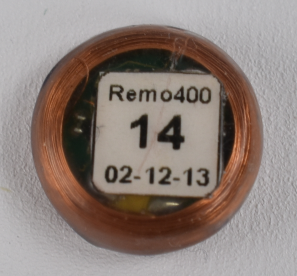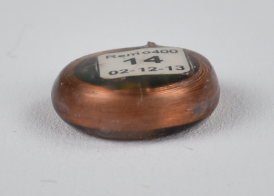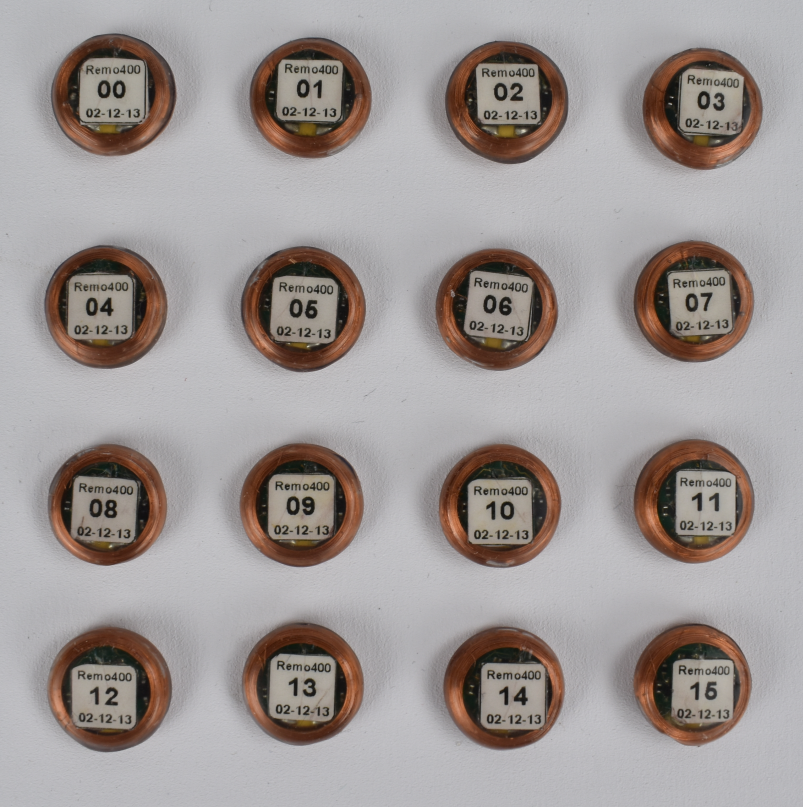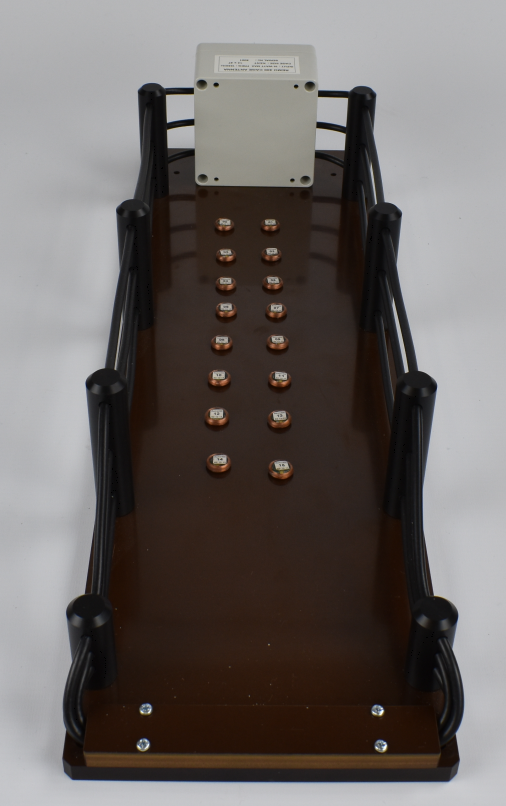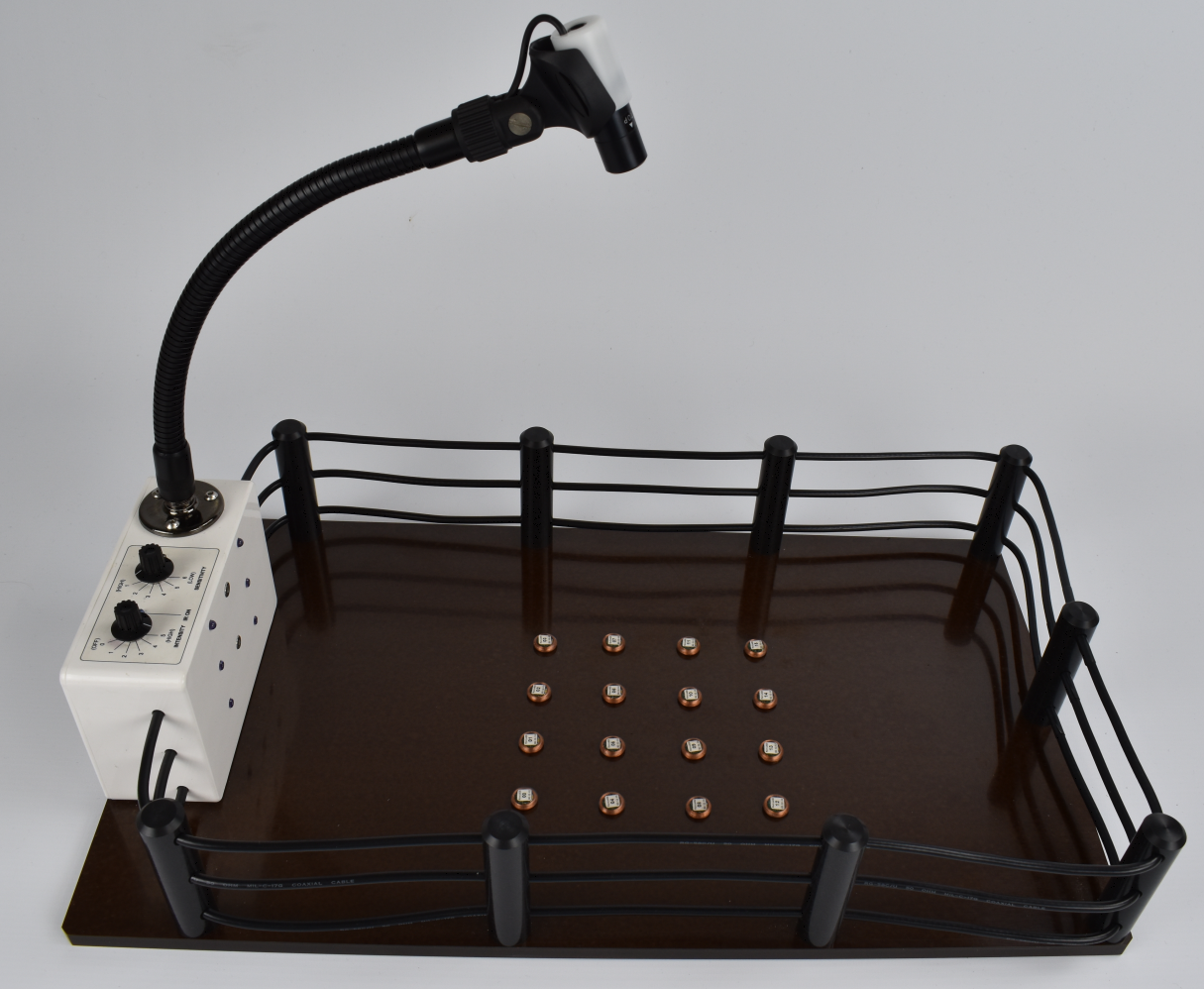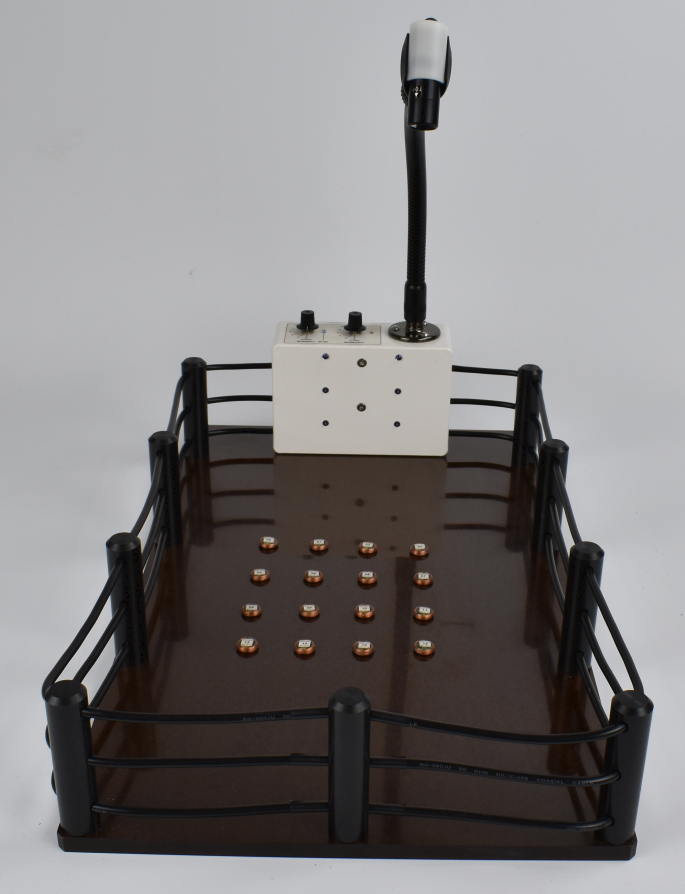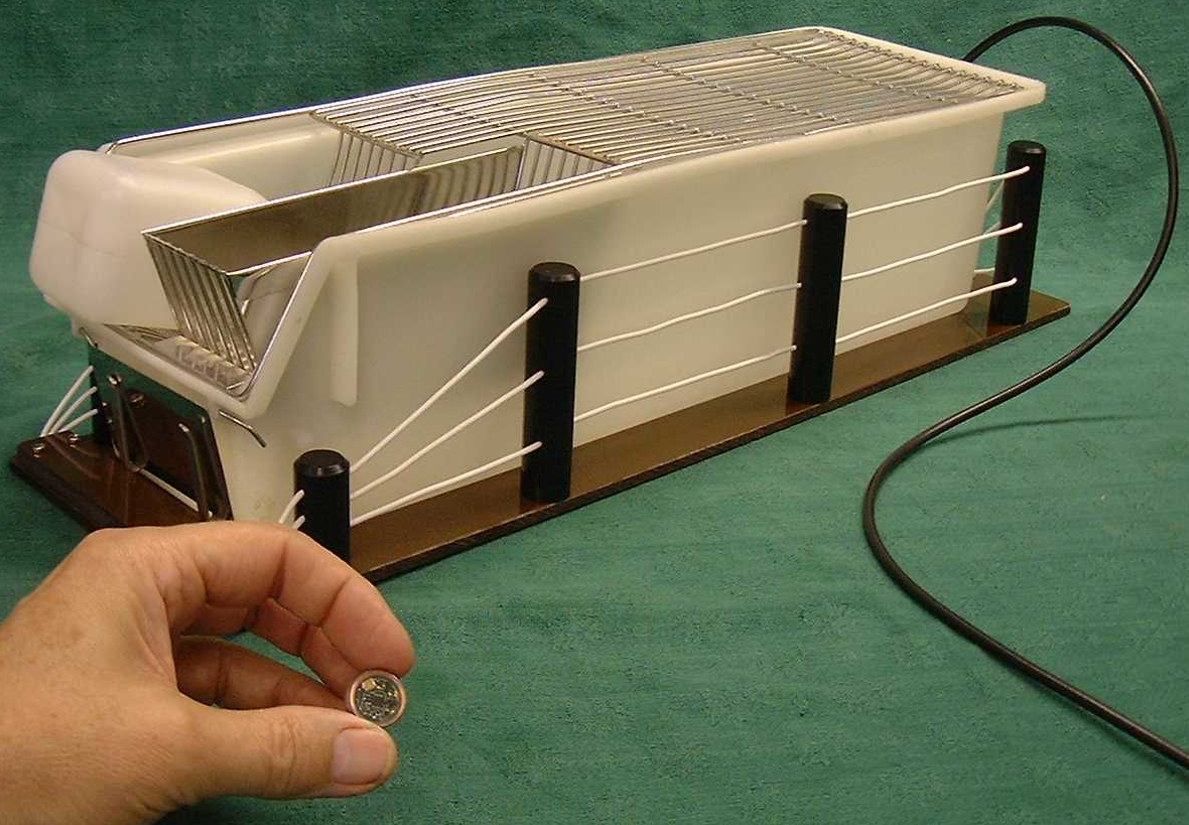Description
The EMMS REMO 400 series of telemetry is an implantable batteryless system to monitor body temperature in small rodents.
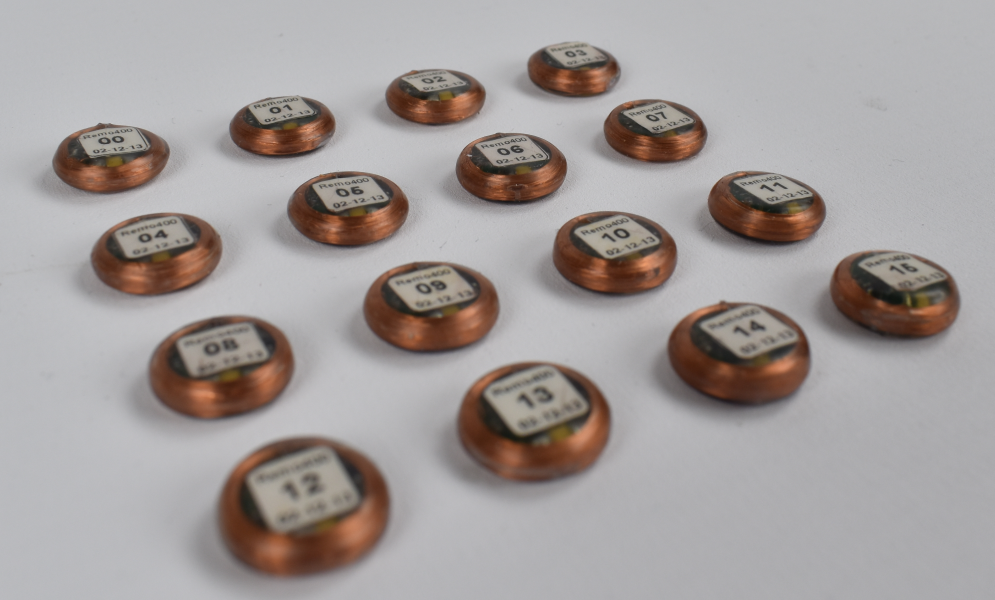
Advantages
Batteryless design
Can be re-implanted multiple times
Up to 16 subjects can be measured in the same cage simultaneously
Multiple cages can be monitored from a single computer
Small and light implants
Applications
This system can be very useful to study fever, exercising or circadian rhythm.
Below is a list of the main parameters obtained:
| Name | Units | Description |
|---|---|---|
| ID | (none) | Unique ID assigned to the implant during manufacturing |
| Site | (none) | Site number encoded into the implant |
| BTemp | C | Body Temperature |
| RSSI | (none) | Received Signal Strength Indicator |
Specifications
The cage with the animals implanted has to be positioned on top of the antenna. The cables surrounding the cage when it is on top of the antenna provide power to the implants and collects the data. There are different antenna sizes for standard cages sizes. It is possible to build customized antennas of different sizes.
Up to 16 implanted animals can be placed inside of a cage and monitored simultaneously. Multiple antennas/cages can be connected to the same computer and record data from a large number of animals with a single computer.
Since there is no battery inside the implants the system can run for longer periods of time. The implants can be reused multiple times making it a very cost effective solution.
These are the details of the implant:
| Reference | Type | Species | Dimentions | Weight | Battery Life |
|---|---|---|---|---|---|
| IMP 410 | Internal – Temperature | Mouse | 12x12x3 mm | <1 gram | No battery |
Images
References
The sickness behaviour and CNS inXammatory mediator proWle induced by systemic challenge of mice with synthetic double-stranded RNA (poly I:C)
Colm Cunningham, Suzanne Campion, Jessica Teeling, Leigh Felton, V.H. Perry

